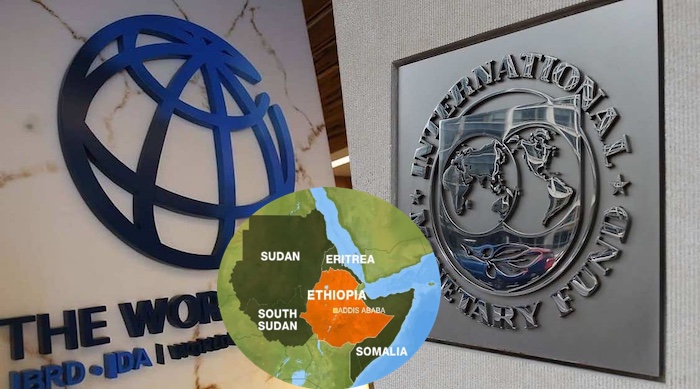
The World Bank and the International Monetary Fund (IMF) have sounded the alarm over Ethiopia’s rising debt crisis, describing the country’s external debt situation as “unsustainable” and warning of heightened risks without urgent restructuring and reforms.
In a joint assessment, the two financial institutions highlighted Ethiopia’s fragile position, citing “protracted breaches of exports-related external debt indicators” as a major driver of distress. The burden has been compounded by an accumulation of both short- and medium-term debt service payments, which the country struggles to meet given its limited revenue base.
Ethiopia’s low debt-carrying capacity has already pushed it into official debt distress, particularly after it defaulted on a $33 million Eurobond coupon payment. The report stressed that the government’s liquidity and solvency are under severe pressure as debt obligations continue to surpass both export earnings and fiscal revenues.
In March 2025, Ethiopia reached an agreement in principle with its official creditors under the G20 Common Framework. A Memorandum of Understanding (MoU) on debt treatment is expected soon, which, if fully implemented, could narrow financing gaps and ease debt distress risks to moderate levels by the 2027/28 fiscal year, when the current IMF programme ends.
However, the joint analysis cautioned that successful restructuring alone may not be sufficient. Ethiopia’s economy remains vulnerable to export shocks, currency depreciation, and persistent political instability. Armed conflicts in Amhara and Oromia, coupled with governance failures, have diverted resources away from critical development needs toward “luxury projects” and domestic crises, further weakening economic resilience.
The IMF and World Bank underscored that without comprehensive reforms, Ethiopia risks deepening its financial crisis, with long-term implications for growth and stability in the Horn of Africa nation.
Melissa Enoch



